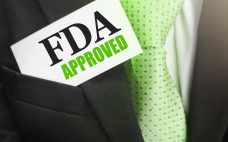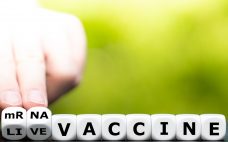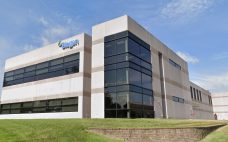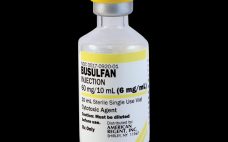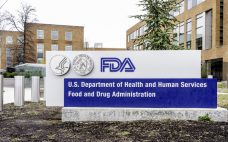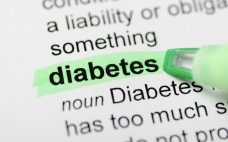The US FDA has approved Abecma (ide-cel); the first CAR-T for a non-CD19 target and the second cell therapy in eight weeks for Bristol-Myers Squibb. This weekend, the US Food and Drug Administration (FDA) approved Abecma (idecabtagene vicleucel, commonly referred to as ide-cel) as the first cell-based gene therapy for the treatment of multiple myeloma. Developed by Bristol-Myers Squibb acquisition Celgene and fellow advanced therapy maker bluebird bio, Abecma is a B-cell maturation antigen (BCMA)-directed genetically modified autologous chimeric antigen…

Therapeutic Class
Cytovia driving CAR NK manufacturing to Puerto Rico
Cytovia Therapeutics will set up a facility in Aguadilla, Puerto Rico to support production of its off-the-shelf iPSC-derived CAR NK therapeutics. Cell therapy developer Cytovia has signed a long-term joint collaboration manufacturing and operations agreement with BioSciencesCorp to integrate Cytoviaâs manufacturing processes within an existing 95,000 square-foot facility. The plant, which will include more than 40,000 square feet of cleanroom and biomanufacturing space, will be located in Aguadilla, Puerto Rico, and the firm says it will recruit manufacturing personnel beginning…
âmRNA has been validatedâ â Pfizer looks beyond COVID
Pfizer is set to make around $15 billion from its COVID vaccine this year, but going forward the firm expects mRNA to be key in other applications. Through its partnership with BioNTech, Pfizer became the first company to receive US and EU approval for a messenger RNA-based product, namely the COVID-19 vaccine BNT162b2. Rollout of the vaccine continues across the globe and as such Pfizer has estimated it will realize approximately $15 billion in sales in 2021 alone. Speaking at…
Busulfan not likely cause of Bluebird Bio trial SAEs says CRISPR Therapeutics
CRISPR Therapeutics says the conditioning agent busulfan is unlikely to be the cause of adverse events that prompted Bluebird Bio to halt LentiGlobin trials. As a medicine busulfan is used to treat chronic myelogenous leukemia. It works by slowing or stopping the growth of cancerous cells. It is also used in cell and gene therapy as a conditioning agent to destroy bone marrow to prepare patients for transplant. Busulfan hit the headlines this month after Bluebird Bio started investigating it as…
Precigen: âElectroporation a game changer for cell therapy productionâ
Precigen says the electroporation device used to make its UltraCAR-T therapies is a game changer for cell therapy production. The US biotech spoke about the technology â the UltraPorator â during its recent Q4 call, citing US FDA approval for its use in the production of investigational UltraCAR-T therapies as a highlight of 2020. According to CEO Helen Sabzevari, âUltraPorator is a potential game-changer for manufacturing of personalized UltraCAR-T therapies as it significantly reduces processing time and contamination risk. âWhile…
Biogen to build $200m NC plant to support gene therapy ambitions
Biogen has laid down plans to build a gene therapy manufacturing at its Research Triangle Park (RTP) manufacturing campus in North Carolina. The planned 175,000 square-foot plant â set to create 90 jobs once operational â will support Biogenâs gene therapy pipeline across multiple therapeutic areas. âWith this new facility, Biogen is investing in robust and scalable gene therapy manufacturing with the goal of ensuring reliable supply to patients worldwide,â the company said in a statement. âGene therapy is an…
Busulfan role in Bluebirdâs woes could impact gene therapy sector
Cell and gene therapy developers will have a close eye on cancer cases linked to Bluebird Bioâs LentiGlobin, say analysts. Earlier this month Bluebird halted two trials of LentiGlobin in sickle cell disease â specifically HGB 206Â NCT02140554Â and HGB 210Â NCT04293185. It said the decision was prompted by a case of acute myeloid leukemia (AML) in a patient in group A of the Phase I/II HGB-206 study and a case of myelodysplastic syndrome (MDS) in a patient in Group C of the…
COVID-19 MAbs should be made with combination in mind says US FDA
Monoclonal antibody (mAb) manufacturers aiming for an EUA should prepare for their SARS-CoV-2 therapies to be combined with others, according to the US FDA. The US regulator issued the advice in guidance this week in which it also urged developers to collaborate and share data. The FDA said, âStrongly recommends that individual monoclonal antibody products be developed with the expectation that they will be combined with one or more monoclonal antibody products that bind to different epitopes to minimize the…
Ensoma launches to deliver âoff-the-shelfâ genomic medicine
Ensoma emerges with Series A funding and a collaboration deal with Takeda for its vector-delivered treatments. Ensoma was backed in its Series A financing by 5AM Ventures and Takeda, amongst other investors, with $70 million (âŹ57 million). Takedaâs investment occurs alongside an exclusive worldwide license to develop Ensomaâs âEngeniousâ vectors for up to five rare disease indications. The agreement includes a potential $100 million investment in upfront and preclinical research payments. Should the candidates progress past the preclinical stage, Ensoma…
Novo Nordisk and Vertex update on rival diabetes cell therapy efforts
Novo Nordisk plans to file an IND for cell therapy for type 1 diabetes in the next few years, setting the stage for a battle with Vertex which aims to start Phase I/II trials of its candidate this year. Denmarkâs Novo Nordisk shared details of its stem cell-based candidate during its Q4 call recently, explaining it will submit the therapy along with several investigation new drug (IND) applications over the next few years. CSO Mads Thomsen told analysts âThe first…

